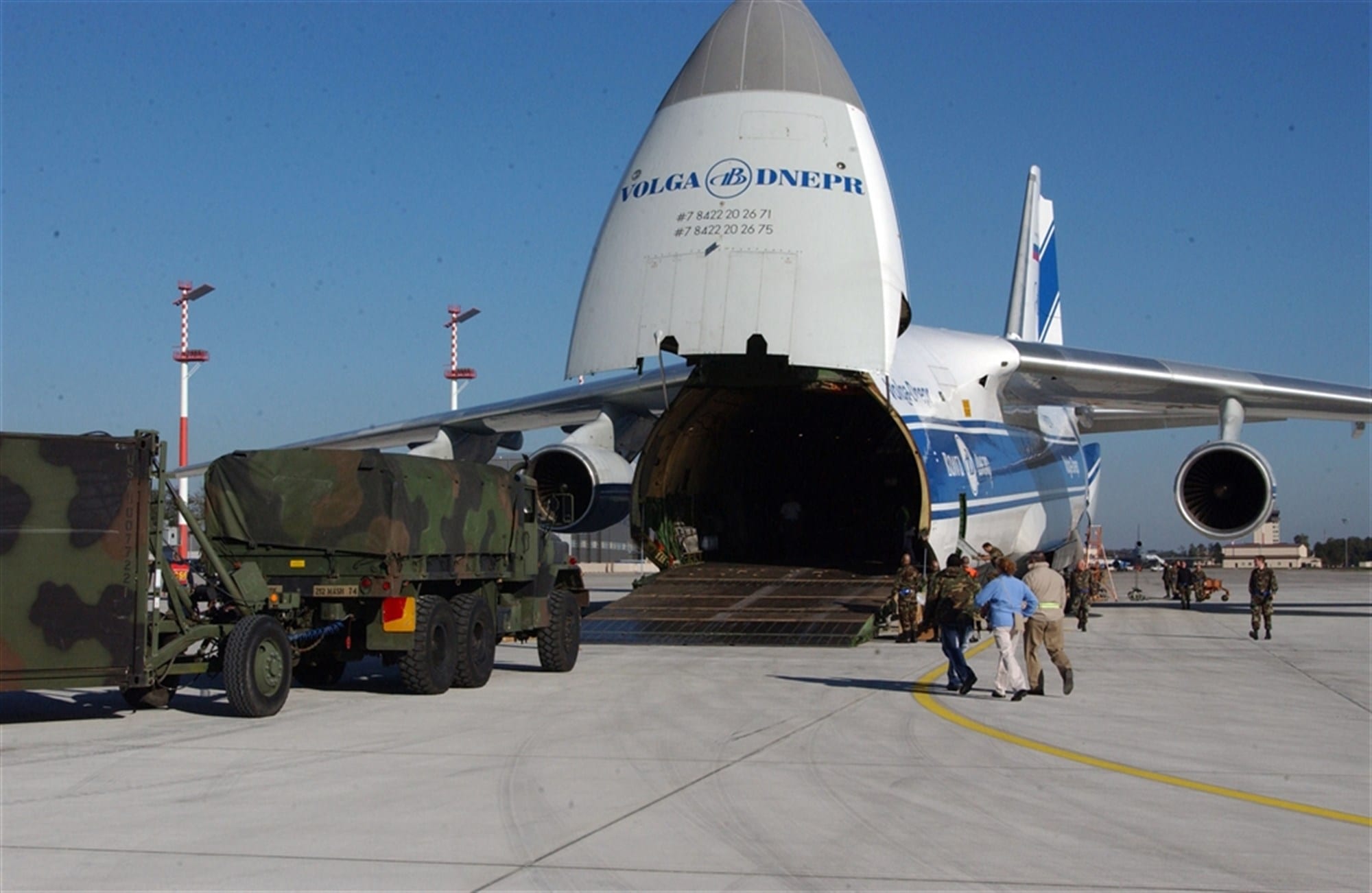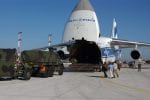One of the first indicators of an army’s performance is its logistical capacity. When high-intensity operations are deployed, there simply are few countries which have the operational capability to transfer immense quantities of equipment, safely and quickly, across the planet. ICS (International Chartering Systems), a small French airlift company, has made meeting this military challenge its specialty.
ICS, International Chartering Services, is a small French company which specialized, in the 1980s, in a very specific type of chartering: top-size. Using close contacts to the Russian and Ukrainian worlds of aviation, CEO Christian de Jonquières obtained access to Antonov 124s, the biggest cargo jets in the world, and started the commercial venture. The arrival on the market of ICS was a game-changer. With commercial airlifts available on the market, France was not only able to extract itself from NATO’s rigid airlift-sharing plan (known as SALIS), but also greatly expanded its transport capacity, well beyond those provided by the new Airbus A400. This outstanding transport capacity was an understandable part of France’s expeditionary culture, as described by the Rand corporation, and represented the way in for ICS. Reporter Dominic Reed explains: “ICS started doing business with the French army through both channels. Both the Army and ICS got lucky by doubling their agreement capacity, because transport capacities were overstretched between 2012 and 2015, with the simultaneous withdrawal of Afghanistan and the deployment in Mali, and things had already been tight before.”
ICS built its worth in reliability, by keeping a small and highly specialized workforce, able to work out all the details of such highly specific flights, and by simplifying operations to the maximum, on the client size. Flight hours were sold, including all overheads (such as maintenance, ground fees, personnel training and empty return flights), unlike SALIS flights, which sold flight hours at a far lower rate, but then added many extra costs, resulting in a fatter bottom line. Because military airlift missions are almost by nature unique, they are difficult to streamline and industrialize: every mission will come with a set of new parameters and complications. Each flight is crucial, as it conditions the military operations down the stream, and must be secured, loaded, calculated and processed through necessary authorizations, not to mention the fact that many will land in hostile environments. A task force of highly skilled, committed and specialized people was therefore necessary to provide services in line with operational requirements. With a peak workforce of 15 people in 2012, ICS was able to provide, for a fraction of the standard price, airlift capacities towards high-intensity operations, at a moment’s notice, with a successful-mission rate of a 100%.
France, as a NATO-member, already had access to strategic airlift capacities, through the SALIS contracts – run from Luxemburg and signed with Russia’s Volga-Dnepr company. However, the sizable limits were then placed on France’s sovereignty, as explained by specialist Katia Vlachos-Dengler, from the Rand corporation: “Significant barriers exist to adopting multinational, integrative solutions for the more efficient use of European lift capabilities. These barriers include, among others, divergent interests and threat perceptions among European countries; concerns about national sovereignty and dependence on other nations; institutional and organizational inertia; and problems with establishing burden sharing relationships.” The first is that NATO handles the distribution of flight hours purchased from Volga-Dnepr. Each country has credits which cannot be exceeded, within the total number which was pre-negotiated with the airlift company. Army Col. Patrik Steiger, spokesman for the French joint chiefs of staff, details the tricky situation: “It is not a total dependence, it is cooperation among allies. We are allies with the Americans, we are engaged in the Sahel region, Levant, and there is the principle of a ‘mutualization’ of available assets.” SALIS contracts being multi-year agreements, they cannot account for last-minute operational requirements. The second limit to sovereignty affects not only France, but all of NATO, and blew up in NATO’s face just months ago. Following US sanctions on Russia, Volga-Dnepr announced its unilateral decision to cease providing strategic air transport to NATO, leaving Western armies to rely on their much smaller cargo planes, such as the Airbus A400, and US C5s and C17s. This new setting excludes, as was probably Russia’s goal, many military items such as heavy armored vehicles, out of the air routes, and considerably slows military deployments. Through its specific business relationship with the Ukraine, ICS is able to save its access to Antonov 124s and preserve its clients’ access to large-scale strategic arilifts.
France, however, also placed itself in harm’s way, when members of parliament were lobbied into denouncing the side agreement with ICS, by large competitors which became fed up with the little challenger’s success. In a 2017 feud which left observers puzzled, Paris separated itself from ICS, and therefore placed itself entirely under the rule of NATO SALIS contracts, themselves at the mercy of Russia. As a resulting move, ICS has extracted itself from the French market, to sell its highly-demanded airlift capacities abroad, namely in Africa and for UN operations – also submitted to high-intensity operations and operational urgency. The scarcity of such offers is such that it explains why ICS was able to rebound immediately on the international market – France’s loss being everyone else’s gain. Namely, the UN’s mission in Sahel was quick to hire ICS for its major logistics needs, which foresee the delivery of large amounts of peace-keeping equipment. Jean-Pierre Lacroix, head of UN peacekeeping operations, recently announced that “Major equipment shortfalls, capability gaps, insufficient infrastructure and a lack of secured operational bases continue to delay its full operationalization”, before ICS was chosen to provide the necessary logistics for the operation.
Russia, the European Union, the UN, and the United States all have dedicated vectors for large-scale cargo, and the administrative structures to operate them. What NATO, and now France, lack, is a small and nimble structure able to address urgent and flexible deployment needs. That capacity did exist for France, but has now befallen the UN, to help with its African operations, leaving all NATO members within the gridlock of SALIS contracts.

